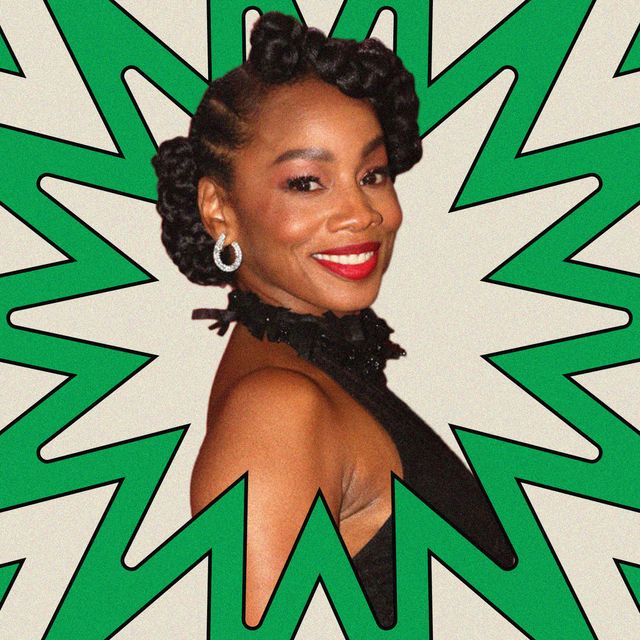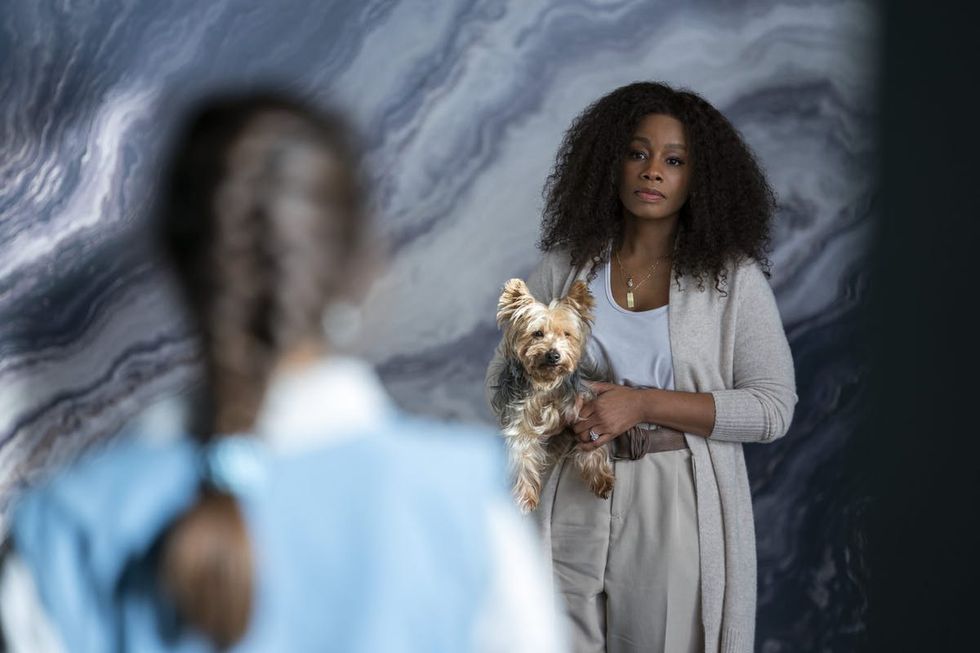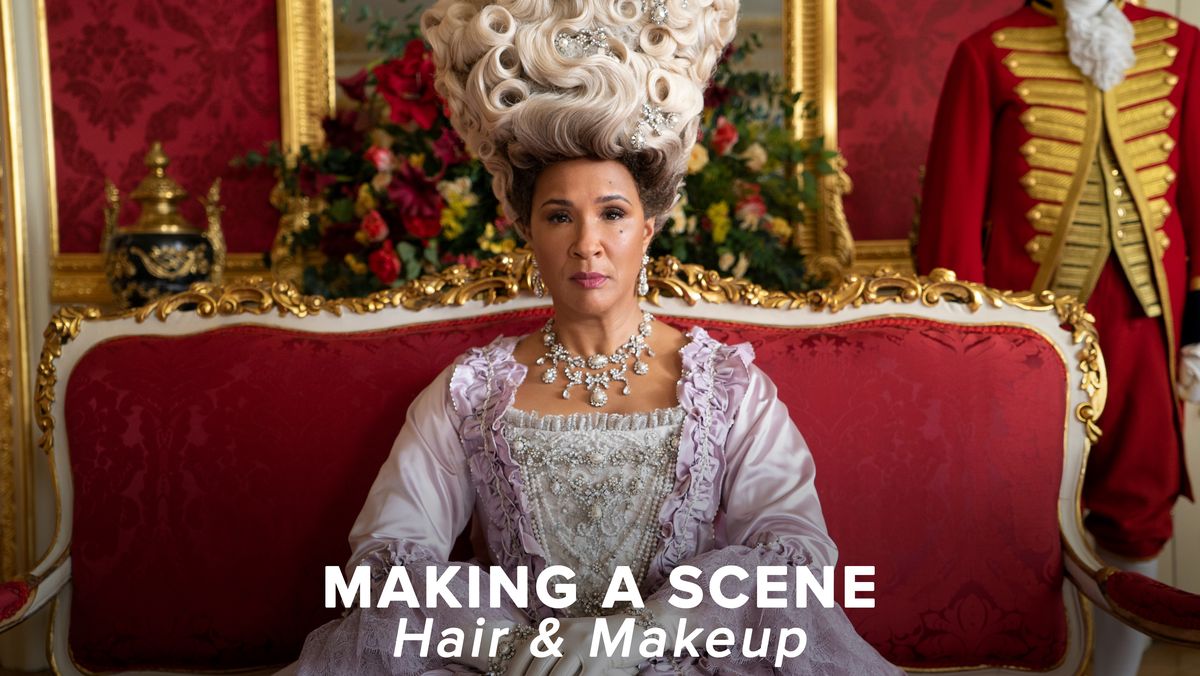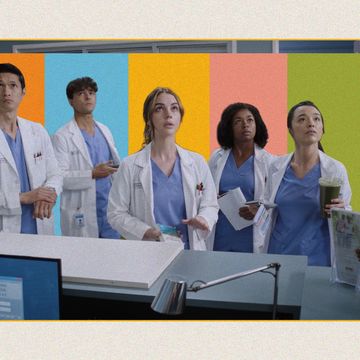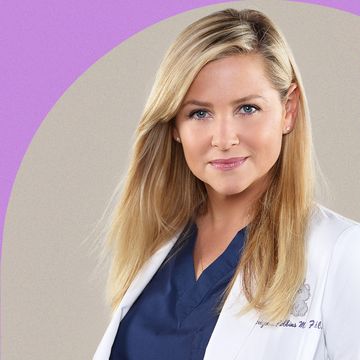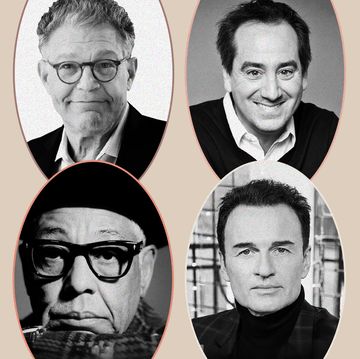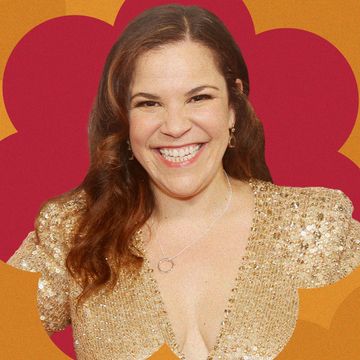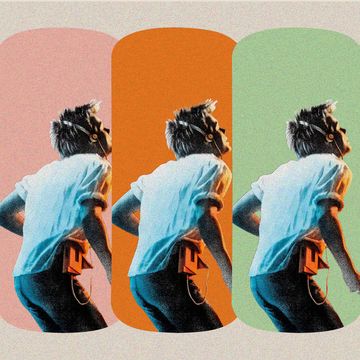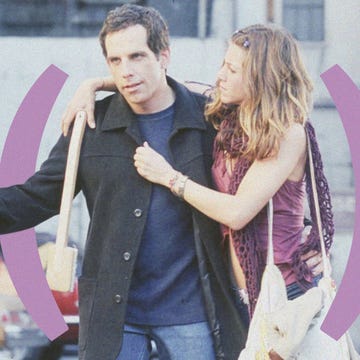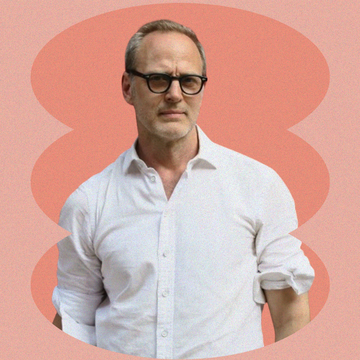Throughout her career, Anika Noni Rose has checked a lot of boxes, so to speak. Among her many stage credits, the actor and singer has appeared in four Broadway musicals and even won a 2004 Tony Award for Best Featured Actress in a Musical for her performance as Emmie Thibodeaux in Caroline, or Change (she was also nominated for a Tony for Best Featured Actress in a Play for 2014’s A Raisin in the Sun). She’s appeared alongside Beyoncé and Jennifer Hudson in the big-screen adaptation of the musical Dreamgirls. In 2009, Rose joined the ranks of Disney royalty — and made history — when, as the first African-American protagonist in a Disney film, she voiced Tiana in 2009’s The Princess and the Frog.
More recently, Rose played the magical Jessica Jangle alongside Forest Whitaker in 2020’s Jingle Jangle: A Christmas Journey. And now Rose is making her mark in one of the most talked about drama series on Netflix, Maid, which began streaming on October 1. The 10-part series is based on the book of the same name by Stephanie Land and follows a single mother named Alex (Margaret Qualley), who works as a low-paid maid while she tries to escape an abusive relationship with an alcoholic partner, all to protect and build a better life for her daughter.
Rose plays the role of Regina, a wealthy but icy lawyer who hires Alex to clean her sprawling, shoreside glass home but isn’t impressed with her work — at first. The two bond, but while some barriers are broken, others are built, making for a fascinating examination of privilege and poverty in America.
As the series continues to garner praise, Rose spoke to Shondaland from her home in Los Angeles about the wealth gap in the United States, playing a Black superwoman on screen, and why Maid is an ode to underpaid single mothers.
NADJA SAYEJ: To start, did you read Stephanie Land’s memoir?
ANIKA NONI ROSE: I actually didn’t, because when we started, we didn’t have time! My character, I was told, wasn’t even in the book. I was written in.
NS: Oh, interesting! So, then, what kind of research did you do for the role?
ANR: I basically just read the script; I felt the script was very complete. But there are things I know from friends and just my life journey, so I didn’t feel that I needed to do a whole lot of external research.
NS: So, when it came to portraying Regina, a tough lawyer who worked hard to get where she is but who still suffers on a personal level, what was most important in bringing her to the screen?
ANR: I felt like what was interesting about her was that she did, on the surface, look like everything was perfect. She was, in some ways, the stereotypical superwoman as a Black woman; then we find out she’s shattered on the inside. In the series, a lot of things go in directions where she does not know, as such is life. So, I thought it was a real space to inhabit, within Regina, a woman who is so involved in herself, it’s easy to watch her and think, “Oh, what a bitch.” But then you realize she’s dealing with really heavy stuff.
NS: I think we see some of that in the fourth episode when Regina has a heart-to-heart moment with Alex, where she tells her: “Don’t ever let anybody take advantage of you, make you feel less than your hard work.”
ANR: I feel like most women deal with people taking advantage of them, seeing them work hard and deciding to lessen that for the heightening of someone else’s journey. Any woman in a meeting knows the feeling that when they’ve spoken up, someone has spoken over her or someone else has taken credit for what they said. Regina learned the hard way that she worked hard, but the payoff was never the payoff she wanted it to be — and I’m not talking about money. She always thought life would be better, that she would be respected for all the work she put in, all the successes she garnered. People, very often, don’t do those things unless they have to. Some people are just really good people, and they recognize other people’s contributions. But as a woman, generally in the world and especially with business, the bottom line is that your job doesn’t love you. So, find someone who does. And make sure they do, because your job is not going to be the thing that fulfills your spirit in life.
NS: On screen, the relationship between Regina and Alex feels symbolic of the ever-increasing gap between the poor and the wealthy upper middle class in America. Is part of this series about that?
ANR: I would say so. The way you watch Regina’s life and how Alex continues to struggle, it’s like quicksand. The more she struggles, the further down she gets. You’d like to think the harder you work and the more you put into something, the more solid your footing would be, but everywhere she turned for assistance was just another slide down. It’s clear what this country is dealing with. There are so many people out there, specifically women, who are working hard in some way, every day, and can’t make ends meet. They just can’t do it. Alex was doing hard labor as a maid and still couldn’t get enough assistance to make ends meet. She wasn’t lazy. We’ve been looking for that for some time in this country. It’s vibrant after quarantine, seeing what people are having to do and still can’t pay their rent. Even those who worked during Covid, risking their lives, still couldn’t pay rent. It’s sad and shameful. But it’s consistent.
NS: On that note, the series speaks to how government programs and social services are not able to help people living in poverty enough. Did being a part of the series make you think more about that?
ANR: Well, I think about that often. The homelessness situation in this country is out of control. I lived in San Francisco for five years — it was unbelievable, unlike anything I’ve ever seen in my life. I have a family member who is a domestic worker and has a college degree. She’s an intelligent woman who just really likes to clean — she’s very good at it. She realized she could be her own boss, so that’s what she does. I’m not unfamiliar with the struggles people have in order to make it, for lack of a better phrase. This country makes people feel like you should be able to become Jeff Bezos, starting with a broom and a dustpan. That you’re supposed to pull yourself up by your bootstraps and just do it, be a self-made person. But most of the self-made people that we are looking at are not as self-made as they seem. Many had a parent who threw in a million dollars to start off, which helped them build a company from the ground up. The times of starting something from nothing in this country are far behind us. Some people do it, and I have so much respect for them. But a lot of people just can’t feed their families the way they want to and need to. It’s a really disturbing, vibrant truth of our country that needs to be reconciled. Everybody doesn’t want to go to Mars or the moon. That’s an exaggeration of life — some people just want to feed their kids and maybe go to the movies now and again. That shouldn’t be too much to ask for.
Nadja Sayej is an arts and culture journalist based in New York City who has written 5 books, including Biennale Bitch and The Celebrity Interview Book. Follow her on Twitter @nadjasayej.
Get Shondaland directly in your inbox: SUBSCRIBE TODAY
